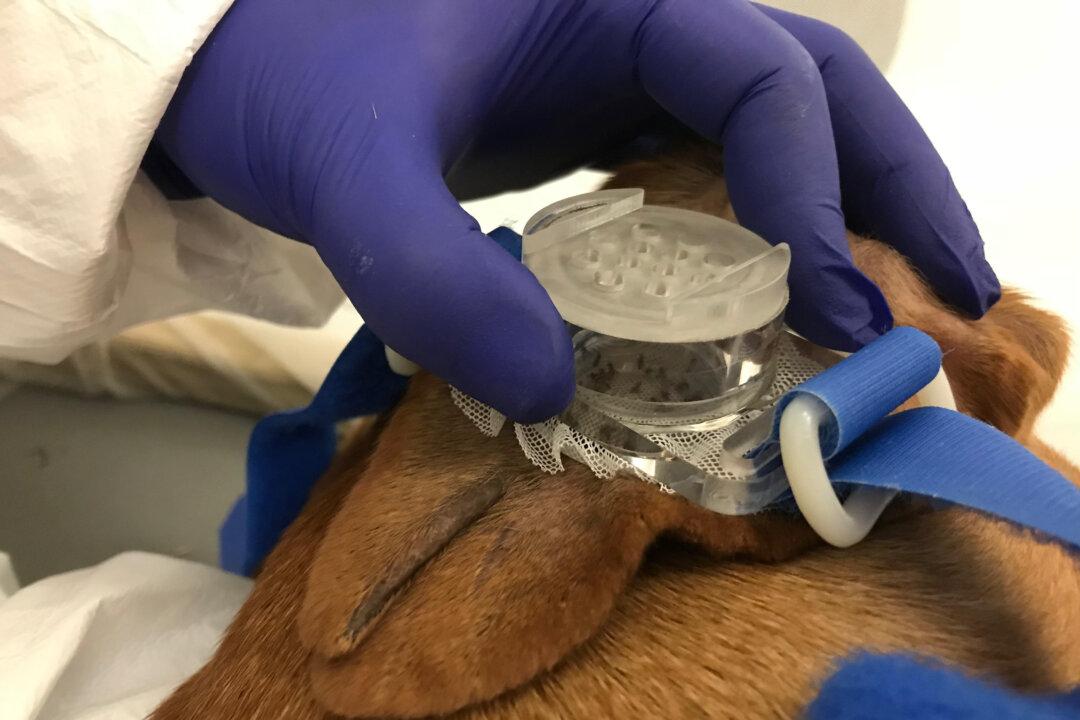Documents obtained by a watchdog organization monitoring government spending for animal experimentation show federal grants of up to $10 million used for “painful and distressful” experiments on discarded dogs at the University of Iowa (UI), a member of the watchdog group said.
Justin Goodman, vice president of advocacy and public policy for the White Coat Waste Project (WCW), told The Epoch Times that the National Institutes of Health (NIH) and the National Institute for Allergy and Infectious Diseases (NIAID) have been using taxpayer dollars to let sandflies that had been starved for 12 hours feed off of dogs surrendered to the university.





